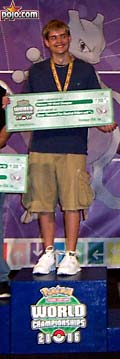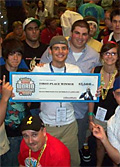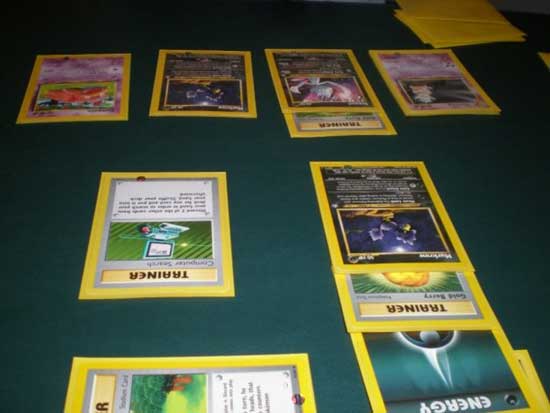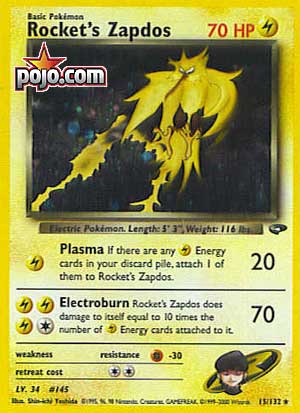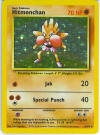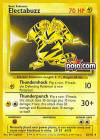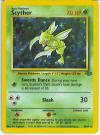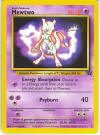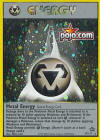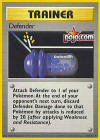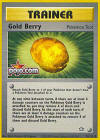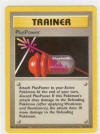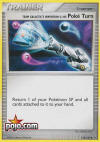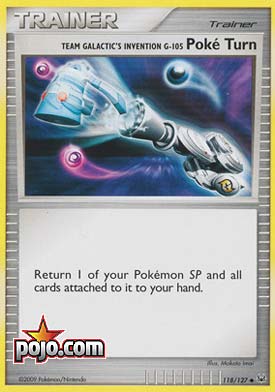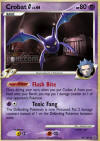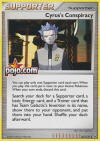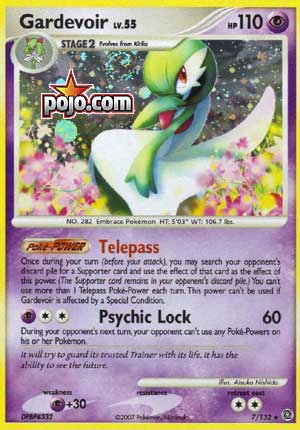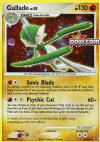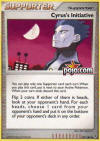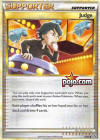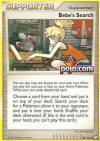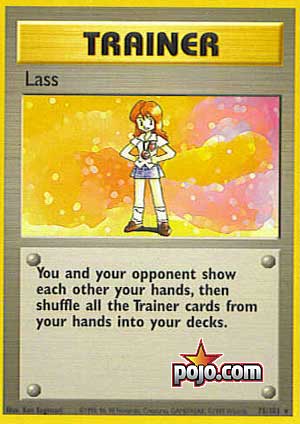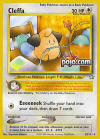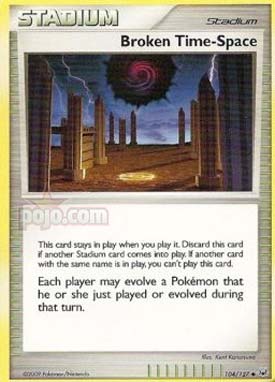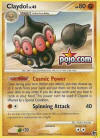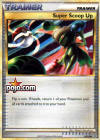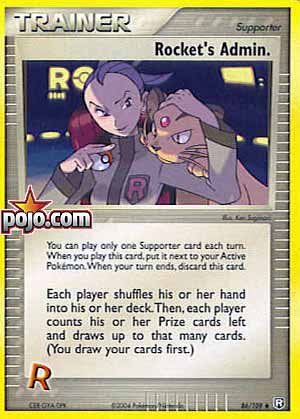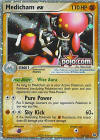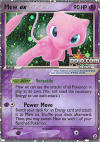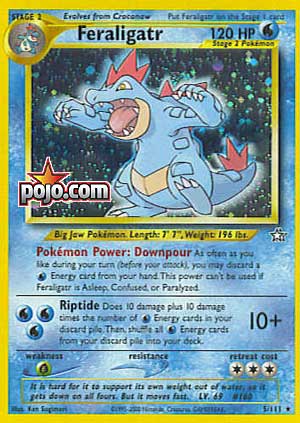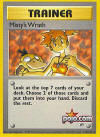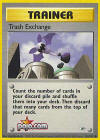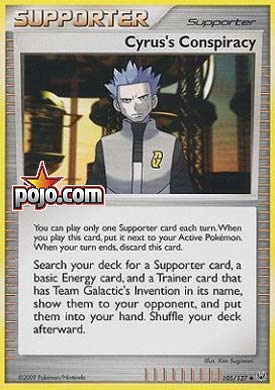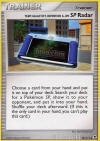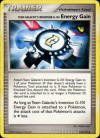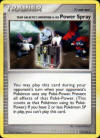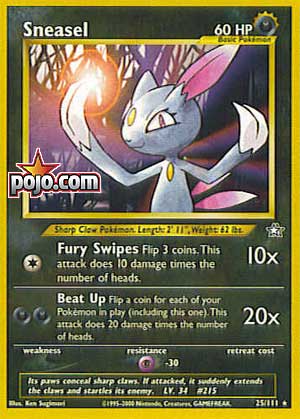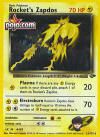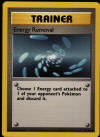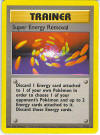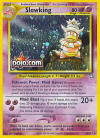|
|
|||||
| Pojo's Pokemon news, tips, strategies and more! | |||||
|
|
|||||
 |
|||||
|
|
|||||
|
Pokemon Home
Magic
|
Ness's Nest
The Top 50 Pokémon Cards
Below I've ranked what I believe are the Top 50 Pokemon
cards of all time. Now, you're probably wondering, how did I
determine which cards were better than others? Well, for
each card, I considered three different things:
#1 The Strength of the card
Self-explanatory. How good was the card? Did it win games?
Was it easy to counter?
Over the card's lifespan, how long was this card good? Some
cards were legal for more years than others, so I don't
consider a card that was good all four years it was legal
much better than a card that was equally good for the two
years it was legal. Instead, I try to look at it by
averaging its strength over its lifespan, but weighed
slightly in favor of ranking the card in its prime.
#3 Versatility of the card
Cards that can be played in more decks are better cards.
That's why you'll see a lot of trainers at the top of this
list: these cards weren't just good, but they were used to
win games in a variety of decks. You'll also see Pokemon
that are used for Poke-Powers higher than a lot of Pokemon
that require a specific type of energy.
Another way to interpret versatility was if a card was
playable in both Standard and Modified. I gave a small bonus
to cards that were good in both formats.
Not familiar with Standard and Modified?
Standard is the first tournament format used in the Pokemon
TCG. It allowed players to use all Pokemon cards. While it
technically still exists today (called "unlimited"), the
last legitimate tournament for it was held in 2002, so
anything from the first three sets (Base, Jungle & Fossil)
rotated out in 2002, as far as me, common sense and this
article are concerned.
The second format, called Modified, began in 2001. The first
modified format allowed cards only from the Team Rocket, Gym
Heroes, Gym Challenge and Neo: Genesis expansions. In the
modified format, the oldest four or five sets rotate out at
the end of each year, or "season." This keeps the game
interesting and also makes access to tournament-legal cards
easier for new players. Modified is the official format of
all sanctioned Pokemon TCG tournaments today, and the annual
Pokemon TCG World Championships.
Overall, I spent over 16 hours re-arranging and moving cards
off & on this list. After all, ranking cards isn't a perfect
science. For those of you that are long time players of the
Pokemon TCG, you will be taking a trip down Pokemon memory
lane. And for the rest of you who never really played
competitively, I'm sure you'll still get a kick seeing which
cards had the biggest impacts on the game.
#30 Rocket's Zapdos (Gym
Challenge)
Formats legal: Standard (2000-2002), Modified (2000-2001)
Rocket's Zapdos was a speedy basic that fit into the same
theme of trainer-heavy decks as Hitmonchan, Electabuzz,
Scyther & Mewtwo. Electroburn could one-hit KO other high HP
basic Pokemon. With no weakness and combo-ing well with
Defender, Metal Energy and Gold Berry, Rocket's Zapdos was
not an easy KO, either.
#29 Crobat G (Platinum)
Formats legal: Modified (2009-) 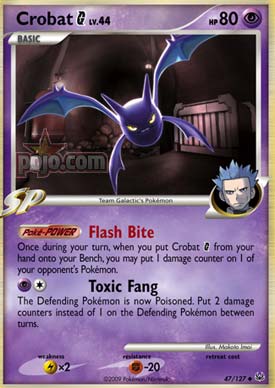
Pokemon that are 10, 20, and 30 damage away from KO are no
longer safe as Crobat G, combined with Poke Turn brings
extra damage out of no where. It prevents players from
retreating heavily damaged Pokemon to avoid KOs as Flash
Bite can pick them off on the bench. Additionally, it
occasionally works like Base Set's PlusPower to score a
quick turn one or two KO.
#28 Poke Turn (Platinum)
Formats legal: Modified (2009-)
It allows you to re-use Crobat G's Flash Bite, save your
damaged SP-Pokemon, and has a variety of other intricate
tricks. Easily accessible via Cyrus's Conspiracy, Poke Turn
is just one of the many reasons SP-Pokemon dominated 2009 &
2010. ------------
#27 Gardevoir (Secret
Wonders)
Formats legal: Modified (2008-2010)
The focus of my Worlds-winning deck in 2008, Gardevoir had
so many things going for it that made it good. For one, it
fits easily into the same deck as Gallade, since both evolve
from Kirlia. Secondly, all legitimate Modified decks had to
run a variety of supporters to be competitive, which gave
you more Telepass options. There were some supporters your
opponent couldn't even play, because if they did, your
ability to re-use them each turn would surely lose them the
game, namely Cyrus's Initiative and Judge. One helpful
Supporter opponents could rarely avoid playing was Bebe's
Search as they needed it to evolve their Pokemon. As soon as
your opponent played Bebe's Search you were guaranteed the
option to fetch any Pokemon from your deck every turn
Gardevoir remained in play. This allowed you to keep the
swarm of Gardevoirs and Psychic Lock attacks coming. --------------------------------
#26 Lass (Base,
Base 2)
Formats legal: Standard (1999-2002)
Lass was actually a mediocre card in the early years of the
game, where it was occasionally used to solidify an
advantage when you had your opponent in a bad spot. However,
it became a staple in every deck after Cleffa debuted in
Neo: Genesis.
#25 Broken Time Space (Platinum)
Formats legal: Modified (2009-)
Broken Time Space allowed evolution based decks relying on
Claydol's Cosmic Power to be extremely fast. Broken Time
Space also works in combination with Super Scoop Up,
allowing you to return high HP evolved Pokemon to your hand,
then instantly re-evolve them back into play.
#24 Rocket's Admin. (Team
Rocket Returns)
Formats legal: Modified (2005-2006)
One of the greatest comeback cards of all time, Rocket's
Admin. was a card that rewarded skilled players. A
well-timed Admin. could sometimes reverse even a 6-1 prize
deficit. The card paired well with EX-Pokemon, which gave up
two prizes. After your opponent KO'd your first EX-Pokemon
you could immediately hit them down to four cards and limit
their options. Then, after a 2nd KO hitting them to two (or
one) was devastating.
Formats legal: Standard (1999-2002), Modified (2001-2003)
Feraligatr was never a great card in Standard, but it sure
was a beast in Modified, claiming several STS titles. In
2001, Feraligatr decks claimed six of the Top 8 slots in the
15+ division. Fueled by two Gym Heroes trainers (Misty's
Wrath & Trash Exchange), Feraligatr's Riptide attack could
score a one-hit KO anything it encountered. Meanwhile, it's
high HP put it out of one-hit KO range for most of your
opponent's Pokemon.
#22 Cyrus's Conspiracy (Platinum)
Formats legal: Modified (2009-)
Half the decks you played in 2009 and 2010 ran four of them
and that's not changing anytime soon. Cyrus's Conspiracy
offers an almost unfair Supporter engine to already powerful
SP-Pokemon. Access to your choice of SP Radar, Energy Gain,
Power Spray & Poke Turn anytime you need them is what keeps
SP decks fast, consistent and disruptive.
#21 Sneasel (Neo:
Genesis)
Formats legal: Standard (2000-2002), Banned in Modified
(2001-2003)
The first card to ever be banned from a Pokemon tournament,
Sneasel was a powerhouse that usually one hit KO'd 70 HP
Pokemon for two energy. This included Hitmonchan, Electabuzz,
Rocket's Zapdos and Scyther. It's free retreat, lack of
weakness, and psychic resistance just added to its strength.
The only thing keeping this card in check was Energy Removal
& Super Energy Removal. So what did people do? They ran it
with Slowking so their opponents couldn't even play those
cards.
|
||||
|
Copyright© 1998-2010 pojo.com This site is not sponsored, endorsed, or otherwise affiliated with any of the companies or products featured on this site. This is not an Official Site. |
|||||

